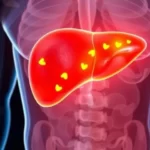Heel pain is one of the most common complaints among patients and can originate from numerous causes. But if you’re facing persistent heel pain, you might start wondering—can heel pain be a sign of cancer? This leads many people to ask, Is heel pain a sign of cancer, or just a result of overuse or strain? While this type of pain is generally linked to benign conditions, it’s worth exploring rare yet serious possibilities. In this blog post, we’ll break down the relationship between heel pain and cancer, identify common causes, and help you decide when it’s time to consult a specialist.
Is Heel Pain a Sign of Cancer?

Most cases of heel pain are not cancer-related. However, in rare instances, cancer can manifest as localised pain in the heel, mainly when tumours spread to the bones. This is typically seen in metastatic cancers such as breast, lung, or prostate cancer.
If cancer is responsible, heel pain often:
Persists despite rest or conservative treatment
Occurs at night or while resting
Comes with other systemic symptoms
Heel Pain Types

Heel pain can stem from a variety of conditions, each with unique triggers and symptoms. Common types include:
- Plantar fasciitis: This is the most common cause of heel pain, especially in adults aged 30–60. It occurs when the plantar fascia, a thick ligament running from your heel to your toes, becomes inflamed or torn.
- Achilles tendinitis: Achilles tendinitis involves inflammation of the Achilles tendon, the large band of tissue connecting the calf muscles to the heel bone. It often affects runners, athletes, or anyone doing repetitive uphill activity. The pain typically begins as a dull ache above the heel but may intensify into a stabbing sensation during activity.
- Tarsal tunnel syndrome: This condition affects the bursa, a small fluid-filled sac located at the back of the heel. Heel bursitis is typically caused by repetitive motions, overuse, or poorly fitting shoes. It results in deep aching pain, swelling, and tenderness.
Stress Fractures: Stress fractures are tiny hairline cracks in the heel bone that occur from repetitive impact or overuse, common in military recruits, dancers, and runners. The pain tends to increase with activity and improve with rest. It may be accompanied by localized swelling or bruising.
Nerve Entrapment (Tarsal Tunnel Syndrome): In this condition, the tibial nerve gets compressed near the ankle, causing tingling, burning, or shooting pain in the heel and foot arch. It may feel like your foot is “falling asleep,” especially at night. If untreated, it can lead to chronic nerve damage.
Correctly identifying the type of heel pain is crucial for determining the best course of treatment and ruling out more serious issues like metastatic bone disease. In rare cases, symptoms may prompt patients to ask, Is heel pain a sign of cancer, especially when it persists despite rest or traditional therapies.
Comparison of Common vs. Cancer-Related Heel Pain
| Feature | Common Heel Pain (e.g., Plantar Fasciitis) | Cancer-Related Heel Pain (e.g., Metastasis) |
|---|---|---|
| Onset | Gradually, especially after the activity | Often sudden or unexplained |
| Pain Timing | Worse in the morning, improves with use | Persistent, may worsen at night |
| Location | Bottom of heel or back of heel | Any heel area may radiate |
| Response to Rest/Treatment | Improves with rest, stretching, and orthotics | Does not improve or worsen over time |
| Accompanying Symptoms | Localized tenderness, stiffness | Fatigue, weight loss, and other systemic signs |
| Patient History | High activity level, overuse | History of cancer or risk factors |
| Need for Imaging | Often not required | Always recommended (MRI, bone scan, biopsy) |
| Prevalence | Very common | Extremely rare |
Common Heel Pain Sources
As mentioned earlier, heel pain can be traced to a range of musculoskeletal issues, including:
- Heel spurs often accompany plantar fasciitis but may exist without causing symptoms. They are seen as bony protrusions on X-rays and develop from chronic ligament stress.
- Plantar fasciitis is an inflammatory condition worsened by weight gain, poor arch support, or long-standing hours. It is the #1 cause of morning heel pain.
- Achilles tendinitis tends to affect active adults, especially men, and may result in tendon rupture if ignored.
- Heel cysts or lipomas are benign masses that may not be painful unless pressed against nerves.
- Nerve irritation, such as sciatica or tarsal tunnel syndrome, is often misdiagnosed due to overlapping symptoms with plantar fasciitis.
In some uncommon scenarios, persistent symptoms may raise the question: Is heel pain a sign of cancer? While rare, heel pain caused by metastatic bone lesions or other oncologic conditions should be considered, particularly if it doesn’t respond to standard treatments or is accompanied by systemic symptoms.
Consulting with your physician or a foot and ankle health specialist will help determine the precise cause and guide you toward the right treatment plan. According to the Mayo Clinic, plantar fasciitis is the most common cause of heel pain, particularly among adults aged 30 to 60.”
Cancer and Heel Pain
While rare, many patients wonder: Is heel pain a sign of cancer, especially when the pain is unexplained or persistent? When cancer metastasizes to the skeletal system, it can cause localized bone pain or musculoskeletal pain, including in the heel.
Symptoms that could indicate a more serious condition include:
- Unexplained weight loss
- Fatigue or lack of energy
- Changes in bowel or bladder habits
- Swelling or tenderness in the heel
- Doctors often advise monitoring symptoms to determine if heel pain is a sign of cancer rather than a benign condition.
In most cases, heel pain associated with cancer occurs when tumours reach the bone tissue, causing chronic discomfort that doesn’t respond to typical remedies.
Diagnosing Cancer-Related Heel Pain
It can be difficult to tell whether heel pain is related to cancer or another orthopaedic issue. If your pain persists and doesn’t respond to rest, medication, or physical therapy—and is paired with other signs like fatigue or weight loss—further investigation is essential.
Diagnostic methods may include:
- X-rays
- Magnetic Resonance Imaging (MRI)
- Bone scans
- Biopsy – A tissue sample tested for cancer cells
If these tests suggest a potential malignancy, an oncologic evaluation may be necessary to confirm the diagnosis. As always, early detection plays a vital role in treatment success. When heel discomfort doesn’t respond to conservative care, it’s natural to ask –is heel pain a sign of cancer?
Is Heel Pain a Sign of Cancer? A Rare But Possible Scenario
Although it’s uncommon, cancer can cause heel pain, especially when it originates in or spreads to the bones. The most likely sources include bone cancers and metastatic cancers that travel to the skeletal system.
In these cases, pain in the heel is typically persistent, progressive, and does not improve with rest or standard treatments. It’s critical to take note if this discomfort coincides with other cancer warning signs.
It’s critical to monitor heel discomfort closely and ask yourself: Is heel pain a sign of cancer, particularly when paired with other warning signs?
When Should You Be Concerned About Heel Pain?

You should consider seeing a healthcare provider if your heel pain:
- Persists or worsens over time
- Doesn’t improve with rest or standard interventions
- Appears alongside other symptoms like unexplained weight loss, chronic fatigue, or swelling in the heel
- Occurs with a personal or family history of bone cancer
Although most heel pain is not caused by cancer, these symptoms warrant professional evaluation for peace of mind and accurate diagnosis. If you’re still asking yourself, Is heel pain a sign of cancer? Consider seeing a provider for early screening.
Integrative Treatments and Care Options
If a link between heel pain and cancer is confirmed, treatment may include conventional approaches like:
- Chemotherapy
- Radiation therapy
- Surgical intervention (in some cases)
Supportive care may also involve:
- Nutritional therapy to strengthen the immune system
- Mind-body techniques to reduce stress and improve resilience
- Physical therapy for maintaining mobility and comfort
At Medex Diagnostic and Treatment Center in Queens, NY, we offer a full spectrum of integrative and diagnostic services. Whether your heel pain stems from common orthopedic problems or more serious health conditions, we’re here to guide you toward healing. Supportive therapies can be especially helpful when heel pain is linked to serious conditions, raising the question: Is heel pain a sign of cancer or a manageable orthopedic issue?
Heel Pain and Cancer – When to Seek Help
Though heel pain caused by cancer is rare, staying alert to your body’s signals is essential. If your pain continues despite treatment—or if it’s coupled with other concerning symptoms—don’t wait.
At Medex Diagnostic and Treatment Center, our expert team specializes in the diagnosis and care of heel pain, ensuring you get timely, accurate answers. Early detection could make all the difference, especially when dealing with potential cancer.
If you’ve asked yourself, ‘Is heel pain a sign of cancer?’—especially when symptoms don’t improve- get evaluated by a specialist immediately.
The Heel Pain Expert in Queens, NYC
Persistent heel pain can be concerning, especially when it doesn’t improve with rest or standard treatments. Understanding the root cause is essential for effective management. In many cases, heel discomfort is due to conditions such as plantar fasciitis, Achilles tendinitis, or nerve entrapment.
However, when symptoms are chronic, unexplained, or accompanied by systemic signs like fatigue or weight loss, patients often begin to ask: Is heel pain a sign of cancer? While rare, cancer-related heel pains, such as those from metastatic bone lesions, should not be overlooked. Early diagnostic imaging and clinical evaluation are key to identifying or ruling out serious conditions.
Accurate diagnosis not only helps guide appropriate treatment but also provides peace of mind for individuals experiencing ongoing heel pain.
FAQs
What does heel bursitis feel like?
Heel bursitis typically feels like deep, aching pain at the back of the heel. It may worsen with activity and feel tender to the touch. While it’s not usually serious, some may wonder is heel pain a sign of cancer when it persists longer than expected.
Why does my heel hurt when I walk?
Walking-related heel pain is often caused by plantar fasciitis, heel spurs, or stress fractures. These conditions are mechanical, but if the pain doesn’t respond to conservative care, it’s natural to question whether heel pain is a sign of cancer or something more systemic.
Why do I have a stabbing pain in the back of my heel?
Stabbing pain in the heel may be due to Achilles tendinitis, bursitis, or even nerve entrapment.
What are red flags in heel pain?
- Pain at night
- Swelling without trauma
- Pain that lasts beyond 4–6 weeks
- Systemic symptoms like fatigue or weight loss
If you’re experiencing these red flags, it’s reasonable to ask: Is heel pain a sign of cancer? These signs merit medical evaluation.
Sudden heel pain without injury—what causes it?
Sudden heel pain can stem from stress fractures, heel cysts, or even metastatic bone disease in rare instances.
Is heel pain a sign of diabetes?
Yes, diabetic neuropathy can cause foot and heel pain, burning, and numbness.
Is heel pain a sign of breast cancer?
Rarely. But breast cancer metastasizing to bone could cause pain in the heel or other skeletal areas.
Foot pain cancer symptoms—what should I look for?
Look for non-healing pain, swelling, and pain unrelated to activity. Systemic symptoms like night sweats or fatigue can be indicators.
What kind of cancer causes heel pain?
Heel pain is very rarely linked to cancer, but bone cancers like osteosarcoma and metastatic cancers such as breast or prostate cancer can affect the heel. These cases are uncommon but worth considering if you’re wondering whether heel pain is a sign of cancer, especially with other persistent symptoms.
What illness causes heel pain?
Aside from cancer, causes include arthritis, heel cysts, autoimmune conditions, and diabetic complications.












Leave a comment